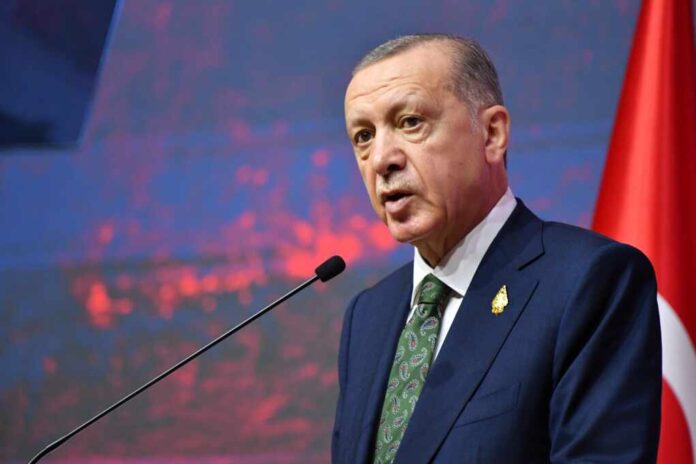
Turkey has announced the suspension of its participation in the Treaty on Conventional Armed Forces in Europe (CFE), a landmark arms control agreement established at the end of the Cold War. This decision aligns Ankara with actions previously taken by its NATO allies and Russia, marking another step away from Cold War-era treaties to ensure peace and stability in Europe.
Turkish President Recep Tayyip Erdogan formalized this suspension through a decree on April 4, signaling a departure from the CFE Treaty, which has governed the deployment of conventional military equipment across Europe for decades. The treaty, signed in 1990, sought to prevent the emergence of new conflicts on the continent by limiting the number of tanks, armored combat vehicles, artillery, and aircraft that NATO and the Warsaw Pact could deploy.
The unraveling of the CFE Treaty began with Russia’s withdrawal in November last year, citing the agreement’s obsolescence due to the West’s military support for Ukraine, sanctions on Moscow, and other hostile policies. Following Russia’s exit, Washington and other NATO members suspended their participation, arguing that the treaty had lost its relevance and effectiveness.
More Cold War Era Treaties Collapse As Turkey Suspends EU Arms Limitation Deal https://t.co/YwKIyLUeOx
— zerohedge (@zerohedge) April 7, 2024
Turkey’s decision to suspend the treaty comes amid improving relations with the United States, especially after Ankara’s endorsement of Sweden’s entry into NATO, which had been pending for over 20 months. The decision was impacted by the U.S. approving a $23 billion sale of F-16 warplanes, missiles, and bombs to Turkey. “I think this is a moment of significant momentum for the U.S.-Turkey partnership,” Sen. Chris Murphy (D-CT) said during a visit to Turkey.
Antagonism between the U.S. and Turkey is leading to division within NATO as well. The U.S. is skeptical of Turkey’s purchase of advanced Russian missile defense systems. Turkey is openly critical of American support for Kurdish groups in Syria, as it considers those groups as terrorist organizations.
Turkey’s suspension of the CFE Treaty reflects a broader trend of erosion in European security agreements, with several falling apart in recent years. The 1987 Intermediate-Range Nuclear Forces (INF) Treaty and the Treaty on Open Skies — which allowed mutual surveillance flights — are examples of deals that have been rejected by both the U.S. and Russia. The unfortunate trend in Europe is now toward erasing longstanding agreements rather than working on new ones.
















